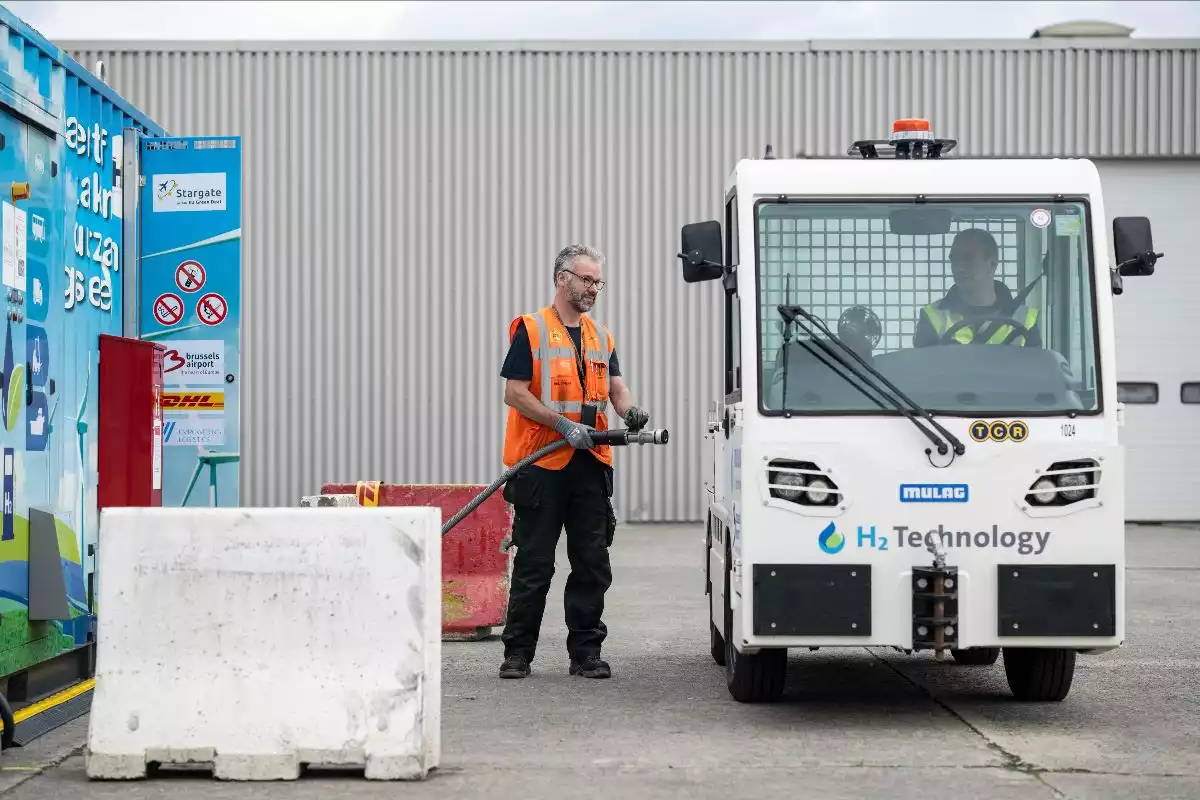Brussels Airport and the Stargate project partners, which are part of the European Green Deal, VIL and DHL, are currently testing a hydrogen recharging station and a hydrogen-powered Mulag tractor at Brussels Airport. This pilot project to use hydrogen in ground handling, the first of its kind at the airport, aims to give all stakeholders an insight into the potential of hydrogen as an alternative fuel. Just like electric ground handling equipment, the use of hydrogen significantly reduces the emissions and noise impact of ground operations.
Stargate: A union of 21 partners
Earlier this month, VIL installed a mobile hydrogen recharging station on the runway at Brussels Airport, in collaboration with WaterstofNet, to test the potential of hydrogen as a fuel for ground handling operations. This pilot project is part of the Stargate project, which Brussels Airport is leading with a consortium of 21 partners with the aim of developing innovative solutions to promote sustainable aviation and airports. DHL is testing its first hydrogen-powered prototype for ground handling operations, a Mulag tow truck equipped with an integrated hydrogen fuel cell system. The tractor trailer used for transporting and loading goods is fueled with hydrogen thanks to the mobile station located on site. Refueling and operations are carried out by trained and certified operators, with the project providing extensive training to users, logistics managers, mechanics, firefighters and health and safety staff.
Six-week test
The goal of this pilot project is to evaluate the potential of hydrogen as an alternative fuel for ground handling operations, in addition to electrical equipment, and to better understand the procedures needed to use this fuel within the airport. This testing will serve as a model for other Stargate project partner airports, providing valuable information about permit application processes, security requirements and operational experiences for all airport partners. The six-week test will end on June 27.
Just like electric ground handling equipment, hydrogen vehicles do not emit carbon dioxide and have no noise impact, benefiting local residents and airport staff. One advantage of hydrogen is that vehicles can be refueled instantly, making it an attractive solution for certain operations and making them less dependent on the electricity grid. This initiative is an important step to promote the widespread adoption of hydrogen technology in aviation, paving the way for a more sustainable future.

“Devoted gamer. Webaholic. Infuriatingly humble social media trailblazer. Lifelong internet expert.”





